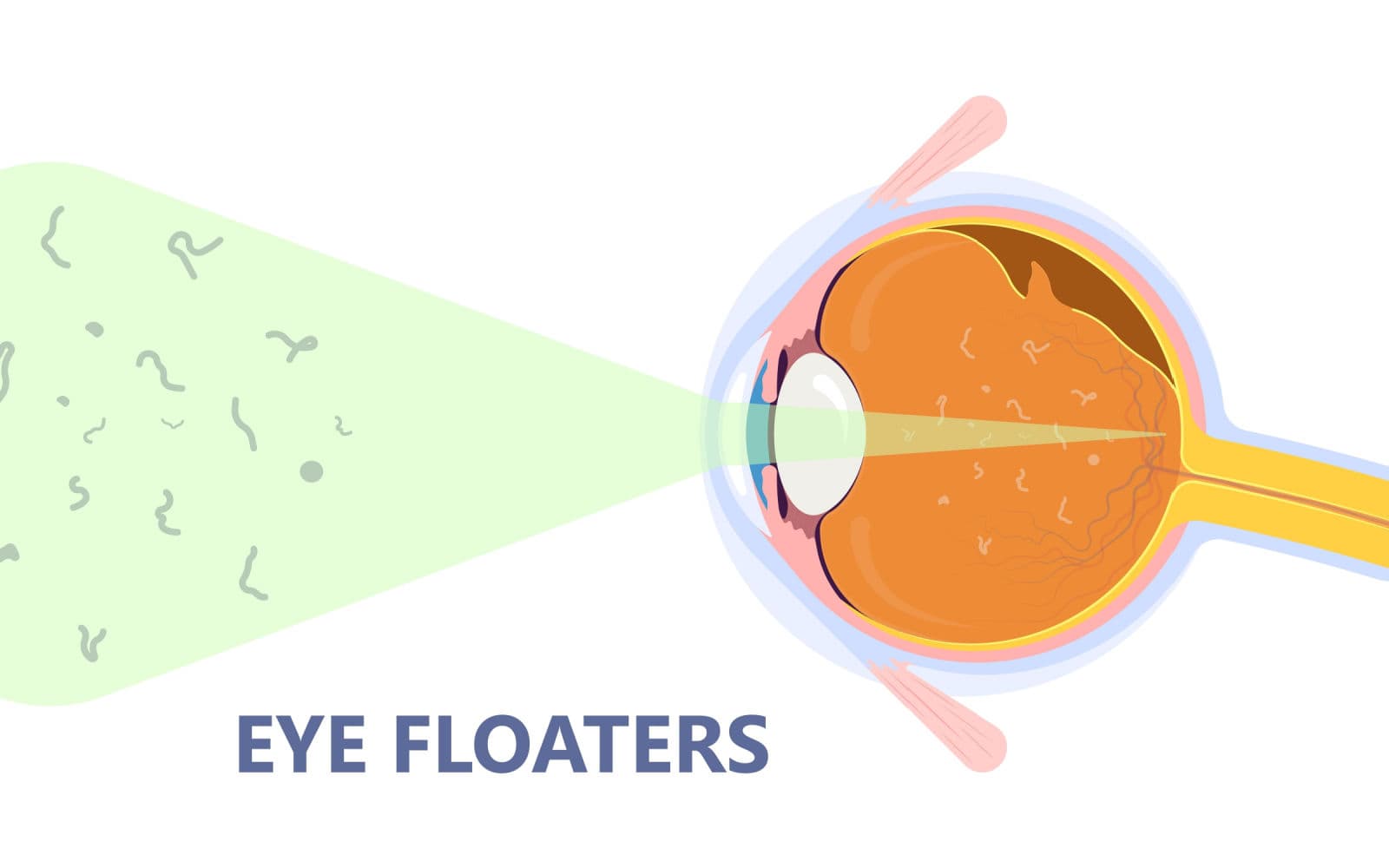What Causes Eye Floaters And When You Should Be Concerned

Have you ever wondered what those floating lines along your vision are? They often appear like small spots, fuzzy clear lines, or even cobwebs and can appear weird at first. These spots are called eye floaters and usually come and go throughout your life. If you’ve ever wondered about these floaters before, we’re here to help you take a closer look at what eye floaters are and when you should see an eye doctor for treatment.
What Causes Eye Floaters To Appear?
Eye floaters are caused by clumps of protein that make up the vitreous gel around the back of the eye. These clumps cast shadows on the retina; because of this, you can see the shadows of proteins from the back of your eye. They’re considered a normal part of aging, but only some experience them the same. Some symptoms of eye floaters include:
- Black or gray specks or dots
- Cobwebs
- Squiggly lines
- Threads
- The shapes move around when you move your eye
- The shapes appear more frequently in any plain or light-colored background
- The shapes go away when looking at them directly
In some cases, flashes of light can also appear, called photopsia. They can look like lightning or stars caused by the vitreous gel being pulled or rubbed onto the retina.
Eye floaters are generally harmless, but when they occur more frequently, they can indicate a more serious eye condition. An increase in eye floaters combined with student flashes of light is a key symptom to look out for, as they can indicate other eye problems, such as:
- Vitreous Detachment: Vitreous detachment is normally not vision-threatening, but at least 15% of cases lead to holes and tears in the retina, causing retinal detachment.
- Retinal Detachment: Retinal detachment occurs when the retina gets pulled away from the back of the eye. It’s considered a medical emergency and should be seen by your ophthalmologist immediately for treatment, as it can lead to vision loss.
- Eye Infections: Some eye infections can cause the vitreous fluid to develop more floaters. In these cases, you should see your ophthalmologist immediately to diagnose and remove the infection to protect your vision.
- Uveitis: Uveitis, or inflammation in the eye, can cause more floaters and lead to vision loss if not treated. This condition has been known to be related to autoimmune diseases such as multiple sclerosis or psoriasis.
- Eye Trauma: Any form of eye trauma can lead to internal eye bleeding, which can cause flashes of light and floaters to appear. Seeing your ophthalmologist for eye treatment is essential to help make sure that the parts of your eye aren’t damaged severely and that your vision is protected.
See Your Eye Doctor For Your Vision Care Today
Eye floaters tend to increase with age and can also be correlated to other systemic health problems such as diabetes, stroke, multiple sclerosis, and high blood pressure. Scheduling visits with your eye doctor is the best way to prevent the onset of increased eye floaters and other eye conditions. You can protect your vision for life by speaking with your eye doctor. What Causes Eye Floaters And When You Should Be Concerned

Dr. Paul D. Trapeni JrAt The Optical Shoppe, we're dedicated to optometry excellence under the guidance of Dr. Paul D Trapeni. Serving the Smyrna community since 1989, Dr. Trapeni is a trusted member of the community, bringing general and specialized optometry care to individuals and families throughout the area.


